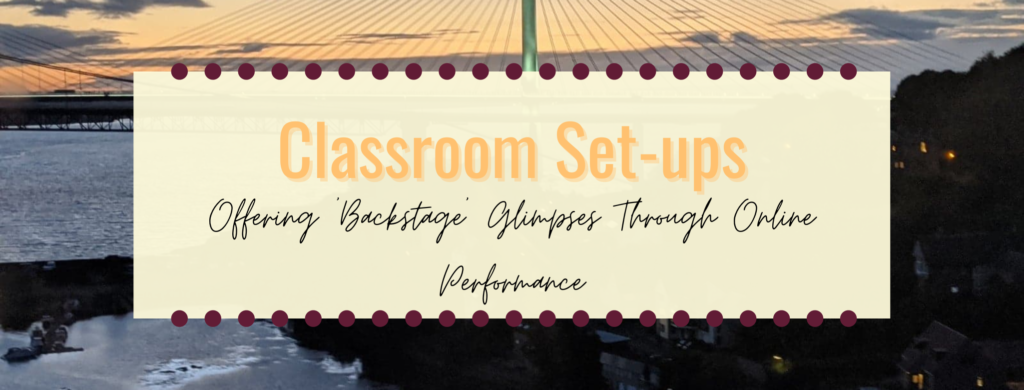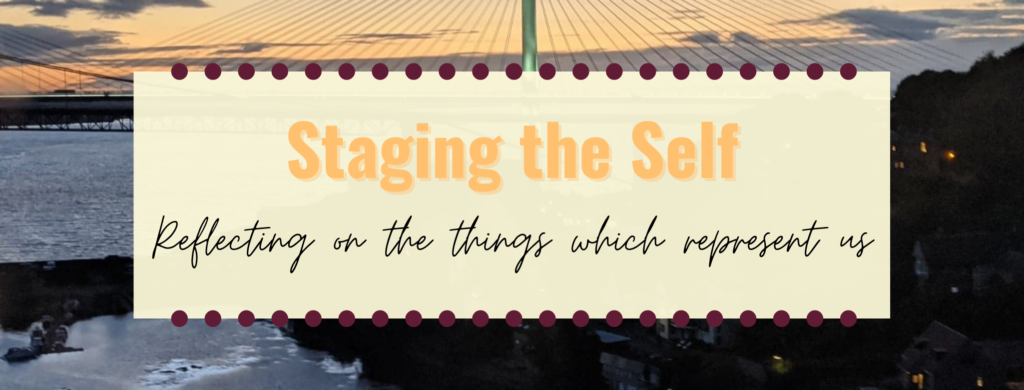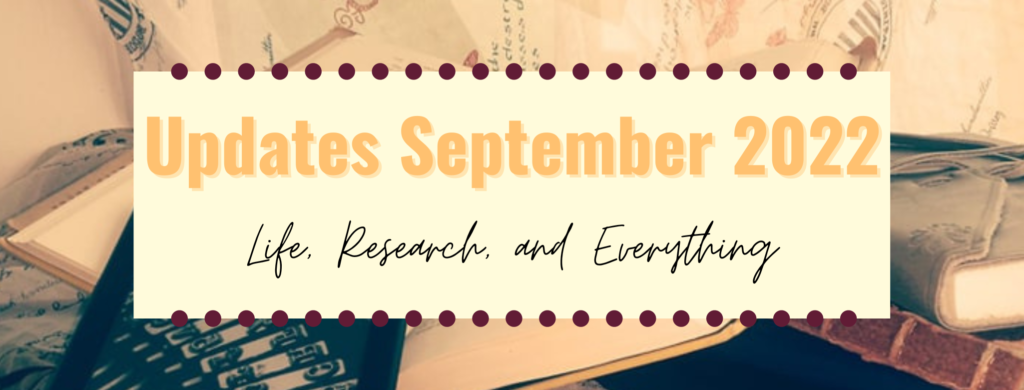This week’s post is vaguely a follow-on from last week’s discussion about R. F. Kuang’s The Poppy War and fantasy/familiarity. The whole review situation and subsequent Twitter fire gave me a lot of thoughts and I will fully admit that many of them are half formed. I can feel there’s something there but, like so much of my research at the moment, I don’t think I’ve fully got it yet, if you know what I mean? So, come along with me on this adventure/ramble about so called “boring” books and author intention. I’d love to hear other people’s opinions too!
So, a quick recap of what inspired this post. There was a lot of Twitter discussion a few weeks back about The Poppy War and, more specifically, a review it received that called it boring and basic. Last week I looked at fantasy and its careful balance between familiarity and unfamiliarity. If an author gets the balance wrong, the book could seem boring for having too steep a learning curve for the reader to enjoy or it could seem basic for following too many typical fantasy tropes. The tricky thing, however, is that different readers will see the balance differently. Someone who has read every vampire book ever written, for example, is probably going to want more than just the usual repetition of vampire lore, while someone who only picks such books up occasionally may need more of the typical signposts to avoid being overwhelmed. There is unfortunately very little the author can do to help this balance – they’re never going to make something that pleases all people – but this is where life becomes interesting. Because, as The Poppy War example shows, sometimes what one reader interprets as boring is exactly what the author intended.
I recently watched a youtube video from Sherliza Moé that discussed some of the recent news that the original creators of Avatar: the Last Airbender had left Netflix’s planned live-action version. The video discussed a few different topics but, most relevant to today’s post, they looked at a review of the original series (24:44). Moé highlighted that the reviewer had largely misunderstood what the creators were doing. All of said reviewer’s issues with the show tended to be based on their impression that the creators hadn’t understood the real-world atrocities referenced in the show, even though, you know, examining such themes in a child-friendly way was kind of the point. The reviewer didn’t understand the creators’ intentions.
The negative reviews received by The Poppy War seemed to fit into two broad categories, with regular crossovers between the two. Some were similar to the review mentioned above, noting the similarities to true historical events and suggesting that Kuang was minimising them by blending them with fantasy. As with ATLA, The Poppy War is essentially a commentary exploring the history it draws from. If, as a reader, you don’t get that that is the author’s intentions, you’re probably not going to love it. The main character, Rin, isn’t always a likeable character. She makes sooo many bad choices. There’s a lot of war, a lot of death, a lot of darkness. It’s not exactly a pleasure read, or even the kind of escape that typical fantasy affords. But, as a historical exploration through a fantasy lens… I personally am loving it. I like exploring the ways that the author has woven true history into her fantasy world, reflecting on the themes they included and their possible intentions.
Other reviewer’s called The Poppy War boring for having so many typical fantasy tropes, or spending too long on certain elements (in both cases, Rin’s time in Sinegard is used as an example). In all honesty, I can understand why someone might call The Poppy Wars boring or basic if they focus on these elements. Sinegard is, in many ways, like a magic boarding school and Rin’s arc there is almost painfully typical of fantasy. Outcast child struggles to find their place at boarding school, until they discover that they are so special that they will eventually exceed their peers, if only they can master themselves with the help of their mentor character. Breaking it down like that, it absolutely is boring. It’s fantasy 101. While this is again the moment where I have to admit that I’ve not finished reading the book, what I’ve seen so far and what I know of it tells me that this is probably the point. Kuang uses these typical fantasy elements – and, in many ways, over uses them – so that they can be twisted and subverted to suit the themes being explored. It’s intentional but, unless the reader guesses at the author’s point of view, not everyone will respond positively to it.
I guess this brings us back to some of the points made in the previous post. The reader’s perspective is important. When I was in my undergrad, I remember once ending up in a discussion about reading “difficult” or “boring” texts. I think it was probably related to questions of “literary” texts and their relevance? Thanks to my dislike of the way certain lecturers treated so-called literary texts as the only ones worthy of reading without being able to give a clear answer about what exactly made a text literary, my response was quite negative. I was adamant in saying that I didn’t like to do so and didn’t really see the point. I distinctly remember thinking of The Lord of the Rings as I spoke, of how much I’d struggled through the first book purely because, as a fantasy lover, I thought I should. Now, I think my answer would be different for two reasons. One, as shown by this example, what you consider to be a “difficult” and/or “boring” texts sometimes depends on your perspective. I used to absolutely demolish whatever new Animal Ark book came out when I was younger, but I would probably struggle now that I know more about writing and am familiar with the formulaic structure the books used to follow. It would be boring to me, but not, I imagine, to my friend’s nine year old. Emma was a somewhat difficult (and therefore boring) for lazy twelve year old me, as was almost classic or “literary” text, but reading it recently was actually quite enjoyable. My perspective has changed. And even though there are still books that I just don’t connect to (sorry Tolkien, I’ll try again at some point), I understand that this is entirely subjective and I wouldn’t want to categorically declare a book as boring because it might not be to someone else.

Whether it’s because I’m older, my research is pushing me this way, or even just through reading that are a bit weird (see the image above), I’ve stopped just consuming texts. I want more. I’m interested in what texts do. Even if it seems boring or difficult, I try and work out what it’s attempting to do and who it’s trying to speak to. Because I may not be the intended reader and, honestly, that’s okay. Not all texts are for all readers. Being someone who is lazy/fussy/likes ripping texts and my opinions of them apart (see my other blog), I’m maybe not the reader the author was aiming for. If I can see the skill behind it, however, I’m probably going to appreciate it, even if it’s not my personal taste. I like the puzzle of working out what the author intended. But that’s the tricky thing. Not all readers are going to pick up what the author meant to do and not all of them are going to dig deeper to try and do so.
I do worry about this periodically as I work on Shifting Sands. Because of the mechanics I’m using, there are bits that I can see bothering your average reader. It’s heavily character focused and, while each character has their arc, some are slow burns, with not much progress. It needs the reader to want to thread together the things that are left unsaid, to wait for the next shuffle of chapters so that they can put the puzzle together, to understand what I’m doing as an author. But not every reader is going to put in that effort and there’s nothing I can do about that. They’re not my intended audience. Unfortunately, in this world of social media where everyone has a platform for their opinion, my intentions don’t always matter. Reviews are written both by and for readers. The author cannot control this; we just have to cross our fingers and hope for the best.
Reviewers are a great thing. There’s very little that you can do as an author that will sell your book more than a reviewer raving about it. There’s some debate over whether a reviewer should give out a one star review on a debut or indie novel and, while I get what people are saying, I don’t think reviewers should be forced to be positive in their review if they truly think something deserved one star (I’ve given a one star review before myself!). But I do have hopes for good reviewers who do more than just skim the surface. A review that is purely personal opinion isn’t helpful to authors or, more importantly, to other readers. A review that dives into why they’re giving it such a low score, however, looking critically at what the author was trying to do and how they pulled it off… Those are the kind of reviews I like as a reader, and the ones I hope for as an author.
So, now it’s over to you. What do you think about “boring” books? Are there any that you thought were boring on first read but have now developed a new respect for? I love recommendations!




Don’t think there is such a thing as boring books, it just depends on you as a person and what mood you are in at the time. Sometimes I will try and read a book one day and struggle to find it interesting… then months or years later its my favourite book. Sometimes this is because I gave it the time and energy it needed and other times its because my tastes have changed.
Mood can be so influential! I definitely think that certain books have a ‘right time’ to read them, but you just don’t know unless you go back to check your feelings about a book again.
“Boring books” are all about commitment and interest. If you do not have either interest or commitment, any book will be boring. As an author, I would assume you have to identify and target your reader’s interest. Thereby capturing their commitment. As the old adage says “you cannot please all the people all of the time”. The key to a successful book, both academically and financially, will the author’s success in getting people to read past the first few chapters.
Sadly, I like reading non-fiction books – with the aim to increase my knowledge and learning. As a child, I read dictionaries. Not everyone’s cup of tea. Many would say Dictionaries are boring. To many, that may be the case – but everyone is an individual and unique.
Surely only the die-hard reviewers or academics, who may well have their own axe to grind, will suffer through what they perceive as a boring book. Their interest may not be about the story, or the author, but more about the analysis and their (personal) review. From an ordinary person’s point of view, we read what we like and feel comfortable with. What is wrong with that?
Definitely agree – what’s boring to one person is captivating to another and there’s nothing wrong with that. There is, in certain circles, a demand that you like the ‘right’ book, or that you should hold up certain texts as being amazing, and I struggle with that. On the one hand, yes, there are books that deserve acknowledgement for their importance, regardless of personal opinions. On the other, this kind of creates a need for a person to be seen as liking those texts to be perceived in the right way and I don’t like that. It creates a kind of snobbery about personal taste. In academic circles, that’s annoying and feeds into some of the elitist mindsets.
In general book culture, reviewers are a huge part of the industry and can start receiving advanced copies of books if they attract the attention of publishers. This means they have to keep reading books, putting out balanced reviews to build an audience, and I guess that naturally means there’s a good number of reviewers who will force their way through a book even if they hate it (I’ve done it myself). I just hope that they can bring in that analytical mindset, even if they do hate a book, because then it will be clearer to other readers why they may/may not love a particular book.
The realisation that I enjoy “boring” books now came as a shock to me though. The analytical side of my brain has taken over – if I can rip a book apart to see how it works, I’m going to get some level of pleasure from it. When did this switch happen? I used to be lazy and happy! And I love reading to learn. Maybe I should blame you for that one haha.